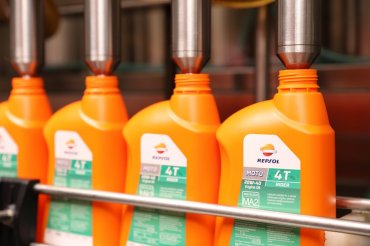
MUMBAI – Entering into Indias automotive lubricant market may seem like a no-brainer due to the countrys position as one of the globes largest markets, but the vast number of already established players can impede success, said an industry insider at an event here last month.
In spite of the difficulties of an overcrowded market, officials from GP Petroleums Ltd. claim it has been able to successfully manufacture and market Repsols automotive lubes in the country in addition to increasing sales of its own Ipol branded products.

Photo Courtesy of GP Petroleums
GP Petroleum’s Mumbai plant has two separate filling lines for the brands produced there: Ipol and Repsol.
Its a good time to enter the Indian market, said Hari Prakash, CEO of GP Petroleums, during his presentation at the ICIS Base Oils and Lubricants Conference.
The country currently consumes approximately 2.1 million tons of lubricants per year, of which 55 percent are automotive lubes. Prakash estimated that total demand will grow at a compound annual rate of 2.3 percent for the next five years.
Most of the increased demand for automotive lubes will be taken up by motorcycle and other two-wheeler oils, so GP is targeting this segment, he stated.
The Indian market, however, is fragmented and low in loyalty, with consumers focused on multinational corporations brands. The bazaar – collections of open-air or tent-covered retailers – is the main largest sales channel for such products. Distributors and multi-brand dealers are the backbone of the bazaar trade, Prakash asserted.
Companies are focusing on below-the-line activities like promotion schemes, signage, workshops and point-of-sale communications to gain a greater share of the market.
Its quite a big task getting into India, stated Prakash in an interview. You need a partner. Its better to partner with a company that is already in the market.
This is what led to the manufacturing and marketing agreement between GP Petroleums and Repsol in 2015.
[Repsol] had been looking for the past four or five years, but they couldnt find the right partner. It was probably the right time and right place, Prakash told Lube Report.
Since the Mumbai-based blender launched Repsols line of products on the Indian market in April 2016, the brand is sold through roughly 100 distributors. GP aims to double that number by the end of 2018. The brands have also infiltrated the top ten states in terms of market size in India.
This success was possible partly due to a strategic alliance between Repsol and Honda. The commercial agreement created a Repsol Honda racing team, which Prakash believes has given the brand more recognition than any marketing initiative by GP Petroleums.
Although its unlikely Honda will do away with any of its current first-fill contracts, Prakash believes that the agreement between Repsol and Honda creates a space to have a dialogue about furthering cooperation between the groups. Should Repsols agreement with GP continue to yield positive results, the companies will look into furthering their business together, though Prakash was unable to provide specific details.
Ipol brand automotive lubricants are also thriving, GP states. Currently the brands automotive line has approximately 180 distributors.
At the moment, Ipols focus is on industrial oils and rubber process oils, but the company has been exporting a number of automotive oils as well. The contribution of automotive is dramatically increasing, noted Prakash.
Partnering with an existing Indian lubricant market player lends itself to possible competition between the partners brands. To avoid this, Prakash advises, its important to create space between the brands so they fill different needs of the market.
The condition was that our existing brand stays. Were not going to kick it out to bring in Repsol, so once that was understood we said, Lets draw white space between the brands, he explained. Ipol offers a complete range of lubricants, while Repsol operates at a premium level.
Another condition of the deal was plant upgrades to GP Petroleums Mumbai facility, where the Ipol and Repsol lubes are manufactured.
When Repsol came in they had given some suggestions, so we upgraded the plant from a health and safety perspective, said Prakash, adding that GP Petroleums is also investing in plant modifications to bring the facility up to the Spanish companys standards.
The plant has two filling lines – one for Repsol and one for Ipol.
In the near future the facility will be updated; however, the project plans have been put on hold due to the cash-flow problems India currently faces. Prakash also noted that GP is looking into acquiring a small plant in the south of the country in order to cater to East and South Indias lubricant demand.